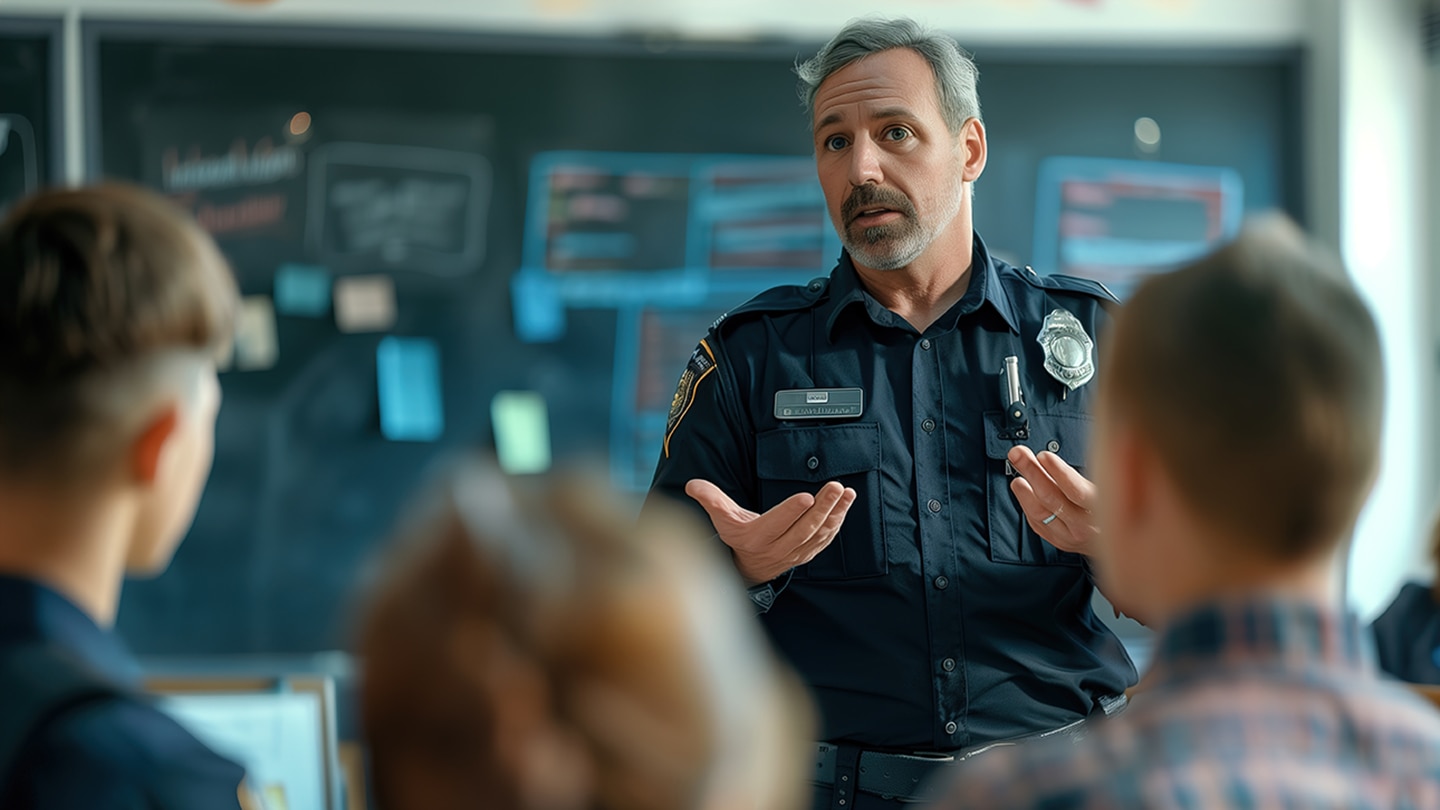
Following the 2018 school shooting in Parkland, Florida, the Federal Commission on School Safety issued a report packed with recommendations and best practices to make schools safer and prevent school shootings. One recommendation called for schools to engage professional law enforcement, giving them a direct role in evaluating and responding to threats. To achieve this, the report called for schools to contract with local law enforcement agencies, ensuring school resource officers (SROs) have ongoing specialized training, proper resources, and knowledge of current standards of practice.
Many schools find this challenging. They may lack adequate funds, or their local police forces might not have officers to spare for school roles. As a result, schools turn to other strategies –– including establishing their own police departments that are directed and controlled by school administrators and local school boards.
What’s at risk when schools set up their own police departments?
Many states allow and encourage this practice, but it has inherent weaknesses and potentially serious consequences. First, many schools don’t have the funding required to hire and administer a proper security program. Second, school boards and administrators know about education but typically lack the knowledge and experience it takes to create and operate a police department.
These disadvantages mean schools with their own police forces are likely to face additional challenges right out of the gate, including:
- Inadequate training and equipment
- Insufficient policies and procedures
- Lack of coordination of emergency responses with local law enforcement
- Elevated liability
Lessons from Uvalde
The 2022 shooting at Robb Elementary School in Uvalde, Texas, is an unfortunate example of all that can go wrong when schools employ their own police forces. The Uvalde Consolidated Independent School District (UCISD) operated its own police department. On that fateful day, a shooter killed 19 students and two teachers while nearly 400 law enforcement officers failed to intervene.
Victims remained trapped with the shooter for more than an hour, with law enforcement officials holding back outside. As Uvalde school police officers delayed law enforcement from multiple other agencies from entering the school, the shooter opened fire. Multiple breakdowns impacted the response to the shooting, including the lack of a formal incident command system and the lack of pre-planning for responding to an active shooter event.
These failures cost lives. They also illustrate why school-operated police departments are ineffective alternatives to SROs from law enforcement agencies.
In the aftermath of the tragedy, there was significant public criticism of the law enforcement response to the shooting. At the request of the mayor of Uvalde, the U.S. Department of Justice conducted a formal review of the response. The report provides a detailed account and critical assessment of the UCISD Police Department’s actions and affirms our view that contracting SROs from local law enforcement is the preferred approach.
School resource officers: The best on-site solution
History shows it’s best for schools to contract with local law enforcement agencies to provide school resources officers for their security needs. After extensive training, these certified law enforcement officers work at the school, adhering to law enforcement agency policies and procedures. In these situations, schools and law enforcement agencies typically sign a memorandum of understanding outlining each party’s duties and responsibilities.
This approach offers four significant advantages:
- Faster, informed response times. Law enforcement officers are on-site and benefit from specific knowledge of the school, staff, and students.
- Thorough preparation. SROs undergo continuous training and relevant, specific education, including weapons training and handling.
- Strong school ties. SROs build trust with students and can become informal counselors.
- Robust planning: As members of threat assessment, crisis management, and emergency response teams, SROs add professional expertise when creating safety plans.
For these reasons, we recommend schools address security needs by partnering with local law enforcement to provide on-site school resource officers.
Violence in many settings, including schools, is impacting communities everywhere. Talk with your insurance carrier about how to manage these events and the importance of insurance coverage.
You can also learn more about Liberty Mutual’s solutions for schools on our website.
Featured insights
This website is general in nature, and is provided as a courtesy to you. Information is accurate to the best of Liberty Mutual’s knowledge, but companies and individuals should not rely on it to prevent and mitigate all risks as an explanation of coverage or benefits under an insurance policy. Consult your professional advisor regarding your particular facts and circumstance. By citing external authorities or linking to other websites, Liberty Mutual is not endorsing them.



